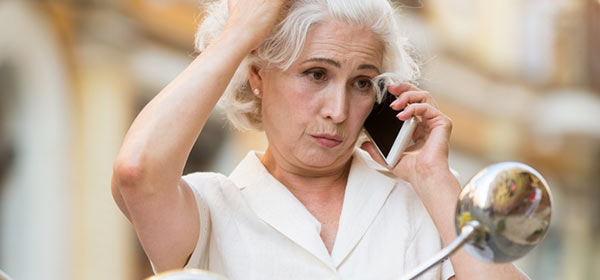Travelling comes with its fair share of risk. From losing baggage, credit cards and passports to car crashes and incarceration, here’s how to deal with 10 common travel disasters.
1. Lost luggage
The first thing that you should do is take a deep breath, then file a Property Irregularity Report (PIR) with your airline. If your luggage doesn’t show up, you’ll need to make a claim with your airline to confirm that your baggage was permanently lost. If you have travel insurance, you’ll need to attach a copy of the PIR and the claim along with a list of your bag’s contents. If you don’t have travel insurance, you can still be compensated for just over A$1000 per passenger.
2. Lost passport
If you lose your passport and you don’t have the recommended document photocopies in your bag or with a family member or friends, then you can obtain an emergency replacement passport from an Australian embassy for around $127. If you’ve left copies with someone back home, have them email or fax them to your hotel. At least you’ll have proof of your existence until your replacement passport is arranged.
3. Lost credit card
If you’ve misplaced your credit card, or think that it’s been stolen, immediately call your credit card company and cancel the card. Depending on where you are and where your credit card provider is based, you can arrange to pick up a card from a branch or have one couriered to your hotel the next day.
4. If you get lost
If you’re in the wilderness and you lose your way, the first thing to do is find shelter from the elements. Then build a fire to provide warmth, ward off wild animals and give you some light. Then think about how you might be rescued and make arrangements to improve your chances, such as building a bigger fire that can be seen from farther away, looking for some kind of mobile phone signal or going the old ‘SOS’ with rocks route. The most important thing to locate is a water source – then food. You can survive for weeks without food but only a few days without water.
If you’re lost in the city, stick to the main streets and eventually you’ll find someone who can point you in the right direction. You could pull out your smartphone and use GoogleMaps or you could just enjoy wandering about if you’re not feeling concerned.
5. Stuck in the airport
If your flight has been delayed or cancelled and you have to spend a night in the airport, contact your airline and see what facilities they can provide. Many have hidden sleeping quarters that they may make available to you if you make the right noises. If you must sleep in the gate lounge, keep clear of high traffic areas and air conditioners. Remember to stock up on food before the restaurants close and, in the meantime, enjoy a drink at the bar.
If you’re stranded for extended periods during the day and the same newsagent over and over just isn’t appealing to you after the third hour, you can still head out of the terminal and explore the surrounding area. Just remember to allow enough time before your flight to go through the security checks upon your return.
6. Rental car accident
If you’ve crashed a rental car and you made the smart move of not paying for insurance through the car-hire company, check with your credit card, as most of them have ‘secondary insurance’, or review your travel insurance PDS, as it too may cover you in case of accidents.
You’ll have to file a police report, get witness statements then fill out an accident report with the rental company. Then you’ll need to get copies of all that, add them to the standard insurance forms and send them to your credit card or travel insurance company. Basically, it’ll take a day to fill out forms and you may not be able to use your hand the next day, so it’s best to drive extra carefully if you hire a car.
7. Booked a bad hotel
Believe it or not, if you’ve booked a bad hotel within Australia that doesn’t match the description provided, your consumer rights are protected. So, if your accommodation is not up to par, contact the ACCC and express your concerns. If you book a hotel overseas, then you’re at the mercy of that country’s consumer protection rules, but the hotels in which you book will also have guidelines that protect your rights to refunds and room swaps.
8. Medical emergency
If you have a serious medical emergency while overseas, you’ll need to consider whether it’s best to stay and take your chances with the local hospital or take the pain and head back home. If you’re ever in this situation, whip out your phone and check out International SOS and its Health Risk Map to see where you can access nearby quality emergency medical and dental care nearby.
9. You get locked up
Should you ever be on the wrong side of the law and incarcerated, the first call to make is to the Australian embassy (or the country of your citizenship). The embassy will help you find local representation and ensure that you’re being treated fairly. SmartTraveller also provides valuable information that will help you if you’re arrested or imprisoned.
10. Death
The worst travel disaster of all would be death, but you won’t be the one who has to deal with it. Your family will need to contact the Australian embassy, but there’s a limit to what it can do. For more detailed information about the process, head to the SmartTraveller website.
What travel disasters have you had to endure? How did you handle them?

